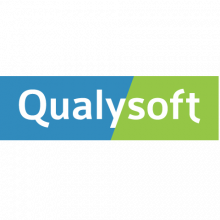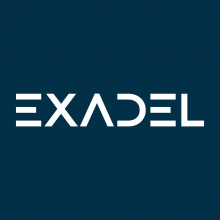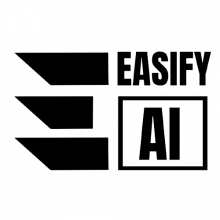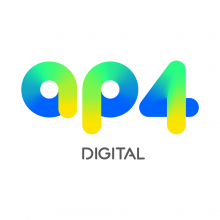
There are 7 Companies in Hungary
that provide Go development Services!
Hungary is an open economy where particular emphasis is placed on encouraging foreign direct investments. Partnership with potential investors is a national priority, special attention is paid to the needs of already existing companies, and to the further development of the business climate. In Hungary, the IT Services market is predicted to reach a revenue of $2.06 billion in 2025, according to Statista.
Discover Top IT Companies in Hungary specialized in Go and other related services. Find the best IT service providers for your projects.
Go, also known as Golang, is an open-source programming language created by Google. It is designed for simplicity, efficiency, and concurrency, making it a versatile choice for building a wide range of applications, from web services to system software.
Handpicked companies • No obligation to hire • 100% risk-free
Featured Companies in Hungary
This month, the following Go development companies managed to provide an outstanding service and support. It's worth taking a look.
Explore Top Go development Companies in Hungary
RabIT is a dynamic and innovative software engineering company with offices in Santa Monica, California and in Budapest, Szeged and Pécs, Hungary.
Easify AI helps you seamlessly integrate AI into your business processes. Unlock the future with Our AI & automation solutions.
Services:
We develop custom software, mobile and web applications.
Stunning apps for professionals
Services:
Filter Go development Companies in Hungary by Cities
Find the right tech company near you or from a specific city. Some of the best companies might be located in smaller cities.
Find more Go development companies around the world
TechBehemoths is the world's most advanced and user-friendly platform to match IT Companies with real clients without hustle.
The Hungarian ICT Industry: General Report & Country Overview
Hungary is an open economy where particular emphasis is placed on encouraging foreign direct investments. Partnership with potential investors is a national priority, special attention is paid to the needs of already existing companies, and to the further development of the business climate.
Starting in 2010, Hungary has put a lot of effort into developing the IT sector. Some of the best steps in this direction are:
- Tax modifications and incentive systems related to R&D activities
- Strategic partnership for local IT companies, as well as government projects
- A dual education system based on the tech industry’s needs
- Adjusted the economic climate to the latest requirements of Industry 4.0
In Hungary, the IT Services market is predicted to reach a revenue of $2.06 billion in 2025, according to Statista. For 2024, the revenue for the same industry was $1.97 billion, which confirms the steady ground the national IT industry stands on. Additionally, Hungarian IT companies have access to the vast EU digital market, which allows them to export services across Europe.
The most popular IT services provided by Hungarian companies are Software development, Software engineering, and cybersecurity. However, in the last several years, local companies have also focused on app development and have worked on an increasing number of projects in the AR and VR branches.
Why You Should Work With Hungarian IT Companies
Even though the digital market is dominated by foreign IT companies (66%), there are also local companies that are striving to provide cutting-edge technology services, which may compete in some places with US, German, and UK companies. For central Europe, this represents a big step ahead and provides cheaper alternatives to the same services for potential customers.
In 2023, the value of Hungarian exported IT services reached 33,664 million euros or 20.9% of the entire export value of the country. The numbers are expected to grow significantly due to foreign direct investments in the sector, which also grew by 19% in the 2019-2020 Q1, and in 2024, Hungary attracted 10 million euros in FDI.
What You Should Pay Attention to When Working With Hungarian IT Companies
Hungarian IT companies are not the best-known on the international market, so far. However, their increased potential lately may lead to a market boom in the central European market, and many potential customers could turn their attention to this progressive alternative. But the main challenge the companies will possibly face is a lack of experience in working with big projects. In its turn, the lack of experience can lead to poor project management, late project delivery, or even poorly executed projects.
How Reliable Are Hungarian IT Companies
Hungarian IT companies don’t have a reputation for providing services in IT, which can turn both into an advantage and a disadvantage for the companies. Depending on how well local IT companies will start performing on a larger scale, the reliability of companies will be appreciated.
How Does the Hungarian IT Sector Relate to the Neighboring Countries
The V4 countries are working together in many areas, including in the IT sector. Companies from these countries benefit from facilities and easier access to national markets, but they also compete.
In these regards, Hungary is the 2nd fastest-growing country in the IT sector in the group of 4, straight after Poland, which already took the lead with an advantage of 35%.
Outside the V4 group, Romania and Ukraine are also countries that are direct competitors with the Hungarian IT sector. It is still uncertain whether Hungary, Ukraine, Poland, or Romania will become the largest Central European hub in the EU, and generally, in Europe.
What is Go and what are its benefits for your projects?
Go, also known as Golang, is an open-source programming language created by Google. It is designed for simplicity, efficiency, and concurrency, making it a versatile choice for building a wide range of applications, from web services to system software.
More than 363 verified IT companies leverage Go in their development projects. These companies range from startups to tech giants like Google, Uber, and Dropbox. They appreciate Go's speed, reliability, and ease of use for building scalable and performant software.
Go service providers rely on various tools and technologies to enhance their development process. Some commonly used tools include the Go compiler, which transforms Go code into executable binaries, and the Go standard library, which offers essential packages for building applications. In terms of deployment, containerization technologies like Docker are frequently used to package Go applications for consistency and portability.
You may be wondering, how is Go Different from C, Rust, and Java. So, below we’ll try to show you more about the differences that exist between them:
-
Go vs. C: While both Go and C are low-level languages, Go offers modern features like garbage collection and memory safety, which simplify programming. Go is also more concise and expressive than C, making it easier to read and maintain. But if you think your business needs companies that also specialize in C, you can find them on this page
-
Go vs. Rust: Rust emphasizes memory safety and control without sacrificing performance. While Go offers simplicity and readability, Rust provides fine-grained control over memory and is suitable for systems programming with a focus on safety.
-
Go vs. Java: Java is a high-level language often used for building enterprise-level applications. It relies on a virtual machine (JVM) and is known for platform independence. Go, on the other hand, compiles native code, offering better performance and efficiency for certain use cases.
Languages related to Go in terms of use cases and features include Python, Ruby, and Node.js. These languages, like Go, are suitable for building web services and backend applications and are known for their developer-friendly features. If you need these programming languages in addition or instead of Go, just click on their corresponding words above to find verified vendors providing those services.
When selecting IT companies that use Go for your project, consider factors such as the company's experience with Go, their portfolio of past projects, client references, and their understanding of your specific project requirements. Look for companies that align with your project's complexity, scalability needs, and budget.
Go service providers are essential for various project types, including:
-
Web Services: Go is well-suited for building RESTful APIs and microservices due to its excellent performance and simplicity.
-
Networking Applications: Go's concurrency support makes it ideal for developing network-related software such as servers and proxies.
-
Cloud Applications: Go's efficiency and speed are valuable for building cloud-native applications and serverless functions.
-
System Software: Go can be used for developing system utilities, command-line tools, and operating system components.
Go is a versatile language, and its speed, simplicity, and efficient concurrency model make it suitable for a wide range of projects, making it an excellent choice for modern software development.






